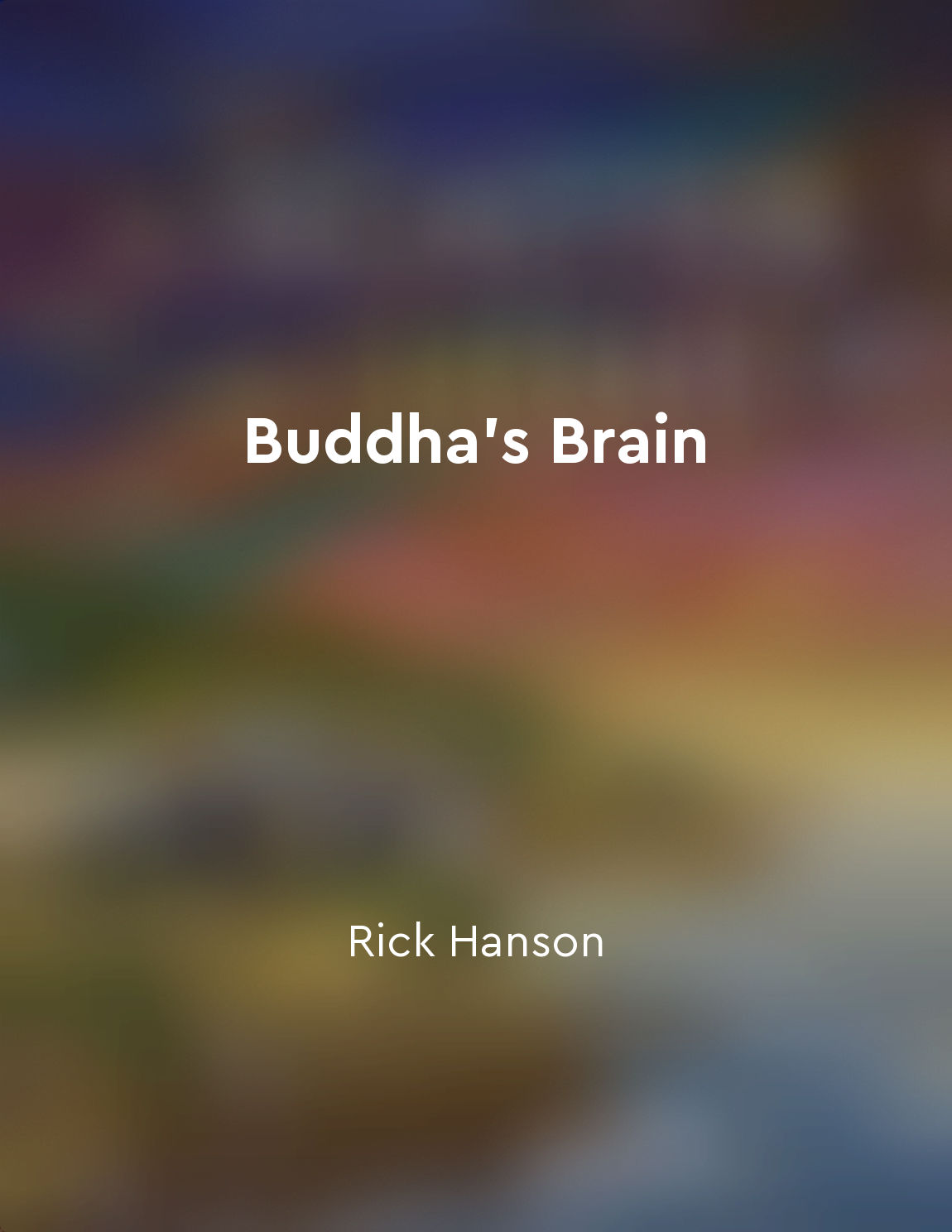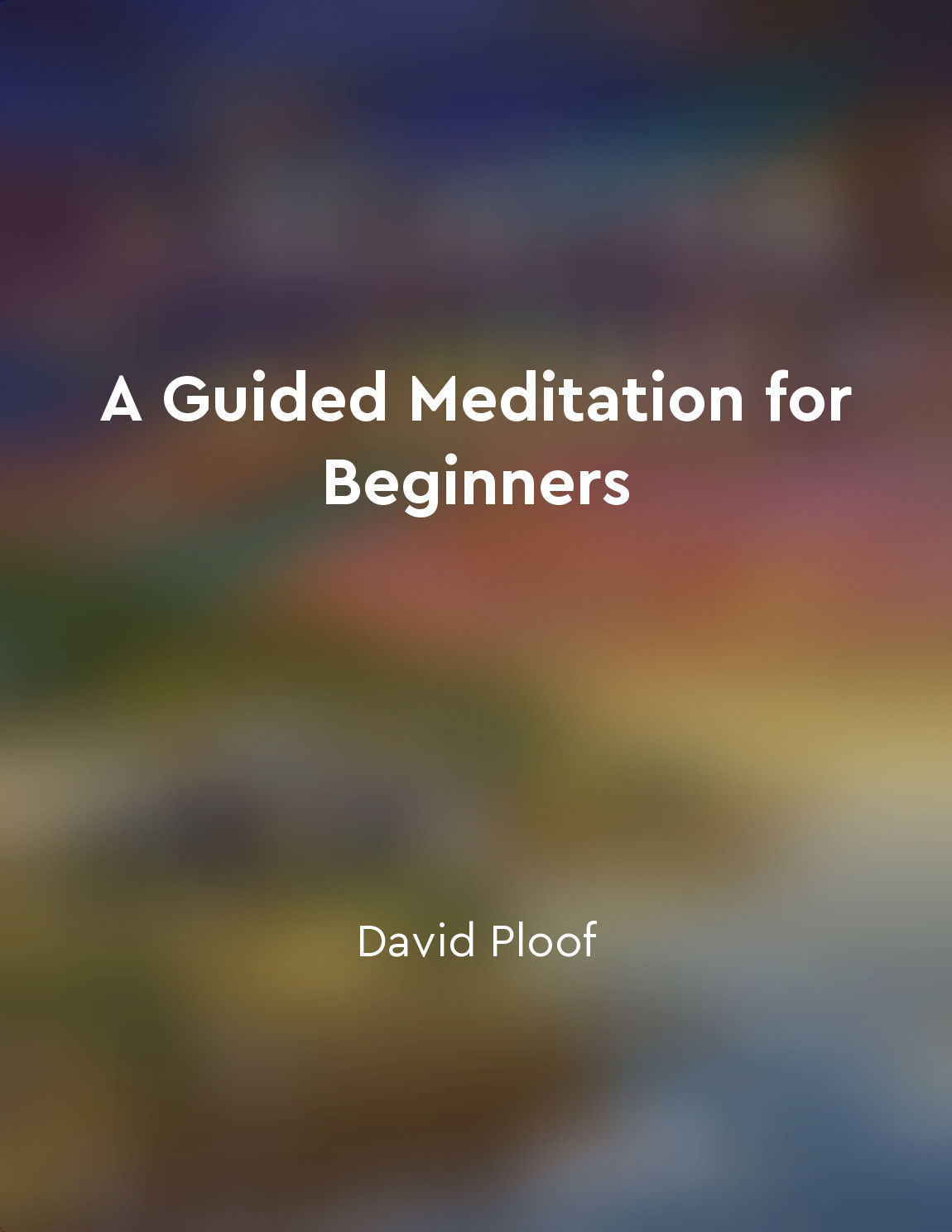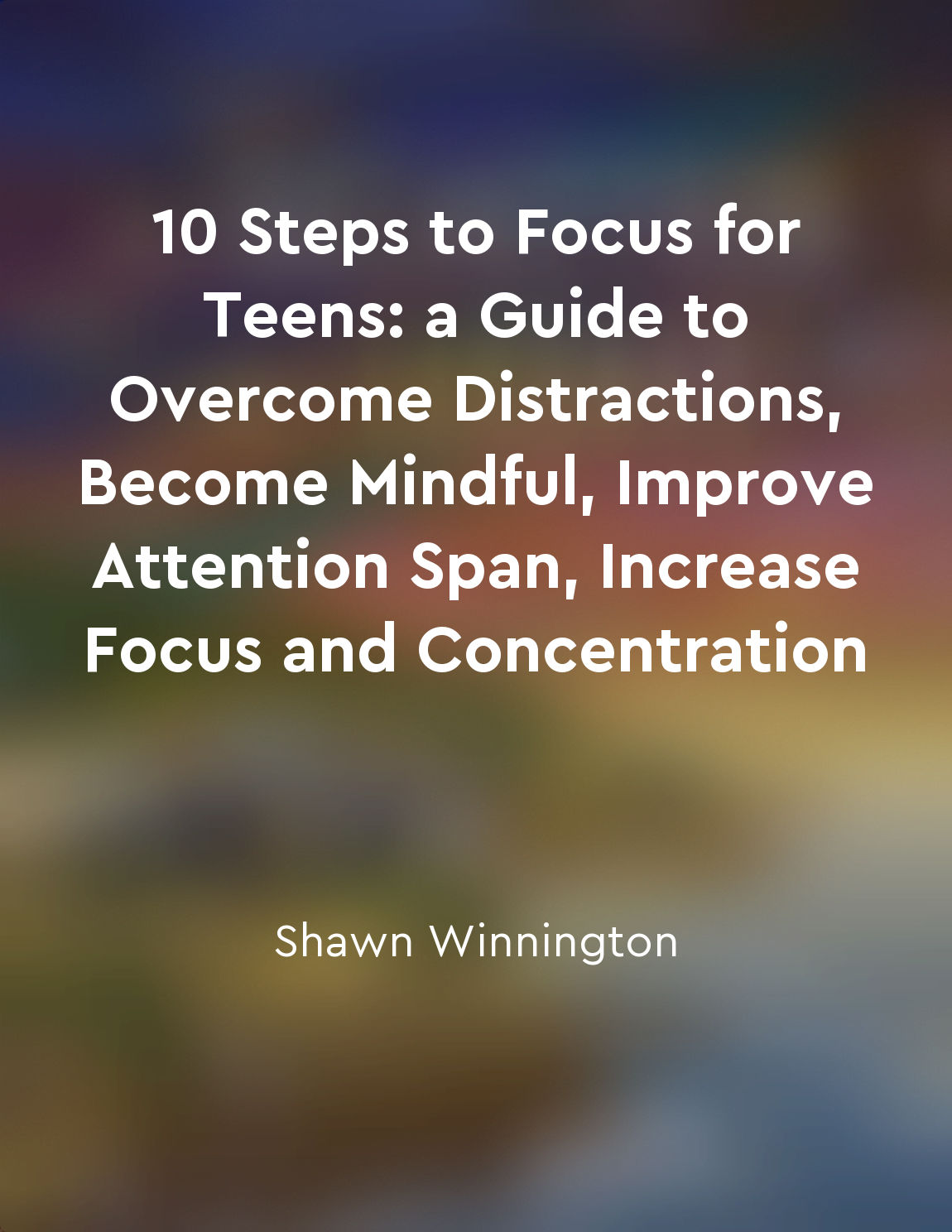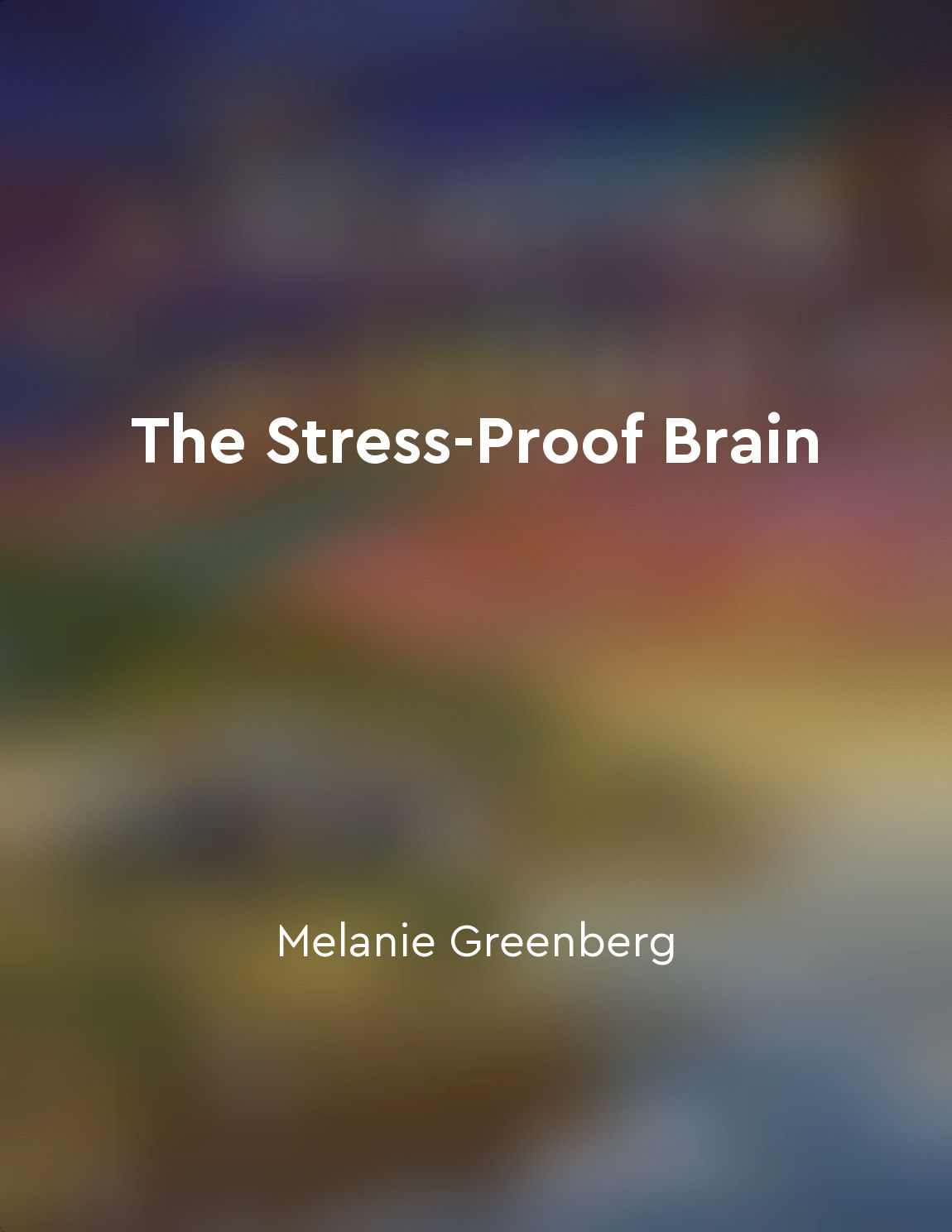Audio available in app
The breath is often used as an anchor for mindfulness meditation from "summary" of The Mindful Way through Depression by J. Mark G. Williams,John D. Teasdale,Zindel V. Segal,Jon Kabat-Zinn
When you practice mindfulness meditation, it can be helpful to have a focal point to bring your attention back to the present moment. The breath is a common anchor used in mindfulness practices because it is always with us, easily accessible, and constantly changing. By focusing on the sensations of breathing, you can cultivate a sense of awareness and presence in the here and now. As you pay attention to your breath, you may notice the rise and fall of your chest or the sensation of air passing in and out of your nostrils. As thoughts, emotions, and sensations arise, you can acknowledge them without judgment and gently guide your attention back to the breath. This process of coming back to the breath helps you develop the skill of staying present and centered amidst the ebb and flow of your inner experiences. The breath can also serve as a barometer of your emotional state. When you are feeling stressed, anxious, or overwhelmed, your breath may become shallow and rapid. By tuning into your breath, you can become more attuned to your body's signals and learn to regulate your emotions more effectively. As you deepen your awareness of the breath, you may begin to notice subtle shifts in your mood and energy levels, allowing you to respond to challenges with greater clarity and composure. Incorporating the breath as an anchor in your mindfulness practice can help you build resilience, cultivate self-compassion, and develop a sense of inner calm. By returning to the breath again and again, you reinforce your ability to stay grounded in the present moment and navigate the ups and downs of life with greater ease. As you continue to explore the transformative power of mindfulness meditation, the breath can serve as a reliable and steadfast companion on your journey towards healing and self-discovery.Similar Posts

Cultivate a sense of purpose and meaning
Finding purpose and meaning in life is essential for our overall well-being and happiness. When we have a clear sense of purpos...
Practicing selfcompassion is essential for emotional balance
The ability to show kindness and understanding towards oneself in times of difficulty is a crucial aspect of maintaining emotio...
Cultivating a growth mindset can reduce anxiety around challenges
When we face challenges, it's natural to feel anxious. We worry about failing, making mistakes, or not measuring up to our own ...

Find ways to connect with others and build meaningful relationships
Human beings are social creatures. Our connections with others are vital to our overall well-being and happiness. Building and ...

Cultivating selfcompassion
Self-compassion is a fundamental aspect of mindfulness and meditation practice. It involves treating oneself with the same kind...
Nonjudgmental awareness brings clarity to our thoughts
When we practice nonjudgmental awareness, we are cultivating a sense of openness and curiosity towards our thoughts. Rather tha...

Limit multitasking to enhance focus
When we try to do multiple things at once, our attention becomes divided and our focus diminishes. Our brains are not designed ...
Stop seeking validation from others
When we seek validation from others, we are essentially handing over our power to them. We are saying, "I am not enough on my o...
Seek to understand before seeking to be understood
When we communicate with others, it is important to remember that listening is just as crucial as speaking. Often, we are so ea...

Sleep is essential for stress management
In order to effectively manage stress, it is crucial to prioritize sleep. Sleep is not just a luxury or a time waster; it is a ...
